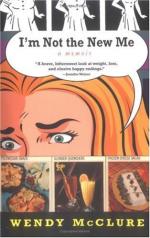Be as uncomfortable or as cross about it as you choose, an out-of-door study is sure to prove your best friend. You become a species of literary tramp, and absorb something of the tramp’s hygiene. It is impossible to be “cooped” at your desk, if you have to cross a garden or a lawn thirty times a day to get to it. And what reporter can reach that sweet seclusion across the distant housemaid’s wily and experienced art? What autograph or lion hunter can ruin your best chapter by bombardment in mid-morning?
In the farm-house study I remember one of my earliest callers from the publishing world, that seems always to stand with clawing fingers demanding copy of the people least able to give it. He was an emissary from the “Youth’s Companion,” who threatened or cajoled me into a vow to supply him with a certain number of stories. My private suspicion is that I have just about at this present time completed my share in that ancient bargain, so patient and long-suffering has this pleasant paper been with me. I took particular delight in that especial visit, remembering the time when the “Companion” gave my first pious little sentence to print, and paid me with the paper for a year.
“The Gates Ajar” was attacked by the press. In fact it was virulently bitten. The reviews of the book, some of them, reached the point of hydrophobia. Others were found to be in a milder pathological condition. Still others were gentle or even friendly enough. Religious papers waged war across that girl’s notions of the life to come as if she had been an evil spirit let loose upon accepted theology for the destruction of the world. The secular press was scarcely less disturbed about the matter, which it treated, however, with the more amused good-humor of a man of the world puzzled by a religious disagreement.
In the days of the Most Holy Inquisition there was an old phrase whose poignancy has always seemed to me to be but half appreciated. One did not say: He was racked. She was burned. They were flayed alive, or pulled apart with little pincers, or clasped in the arms of the red-hot Virgin. One was too well-bred for so bald a use of language. One politely and simply said: He was put to the question.
The young author of “The Gates Ajar” was only put to the question. Heresy was her crime, and atrocity her name. She had outraged the church; she had blasphemed its sanctities; she had taken live coals from the altar in her impious hand. The sacrilege was too serious to be dismissed with cold contempt.




